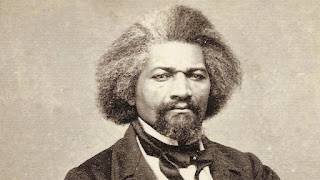During the mid 1800’s African American slave, Frederick Douglass states in his narrative how he picked up on Standard English which created the use of the dialect Black English that eventually helped him become a free man. Black English was created due to the African American slaves informally being taught the English language. Since the slaves were not formally taught, they created their own dialect that did not follow all the same rules as Standard English. Black English allowed many of the slaves who spoke different languages to properly be able to communicate with each other. It also allowed them to learn about life outside of slavery and way to escape. Now of days, many people are quick to judge the dialect because they think it is not proper, while linguists understand the rich history and meaning this dialect holds. Like many other dialects, Black English is a form of a language that has been around for many years and has allowed for great means of communication.
Maria Sanelli and Nathaniel Williams both examine in their text written together how Black English had deeply affected Frederick Douglass’s experience as a slave. Douglass, Sanelli and Williams express the significant moment when Douglass’s slave owner’s wife had taught him the alphabet. This had opened many doors for Douglass as Sanelli and Williams mention because slaves were purposely kept illiterate. Since the slaves had little to no education, they were known to believe that slavery was their only way to succeed in life, they did not see it as wrong. Slave owners kept their slaves under control by keeping them uneducated which took little effort. Douglass quotes specific lines from his slave master stating that keeping slaves illiterate allowed them to remain blind of the abolitionist movement. The slaves were not just held captive physically, but also mentally, which Douglass explains how autonomy is something all slaves must overcome when seeking freedom. Although Douglass’s slave owner’s wife had only taught him the alphabet, Douglass, Sanelli and Williams all share how he took this small bit of information and made the most out of it. He became so well educated with Black English that he was even able to educate other slaves.
The idea of Black English may seem like an issue that was only relevant during the time of slavery, but it is still a problem to some people. Sanelli and Williams highlight how ones’ literacy skills can greatly affect their educational abilities. In our country, we teach Standard English and make it seem as though this is the language one needs to speak to be successful in our country. This means that since some African Americans continue to use Black English, they are viewed as less educated. Sanelli and Williams show that African Americans are still lacking, even after over two hundred years, the proper tools needed to prosper in the classroom. They are continually punished for speaking the dialect of their ancestors who have overcome so much to better the lives of their future generations. Overall, Frederick Douglass’s quick glimpse of Standard English formed the start of his use of Black English. This usage of Black English allowed him to learn the tools needed to become a free man. Without being taught Black English, Douglass may have never been successful at leaving slavery.

This was a great post to read. Despite the fact that I am aware of Douglass, I have not explore this aspect of Douglass’ life on a deeper level. One of the things I learned from reading this is that Douglass was being taught the alphabet by his slave owner’s wife. That added a new layer of knowledge that I have on Douglass. After reading this post, I started to think more about the mention of slaves thinking that the only way to succeed was remaining enslaved. It is sad that it was impossible for them to become literate, but Douglass became the evidence to prove that anything is possible. I would like to know more on Douglass’ approach in educating other slaves, but overall, this post is definitely insightful.
ReplyDelete